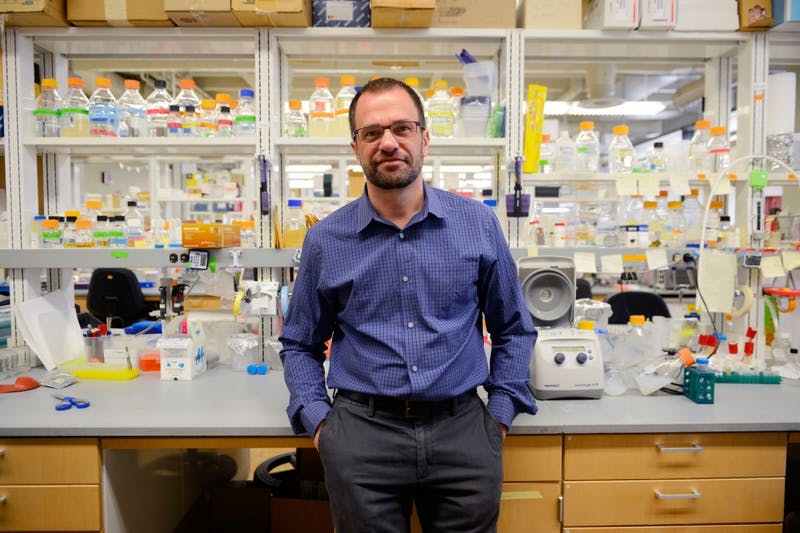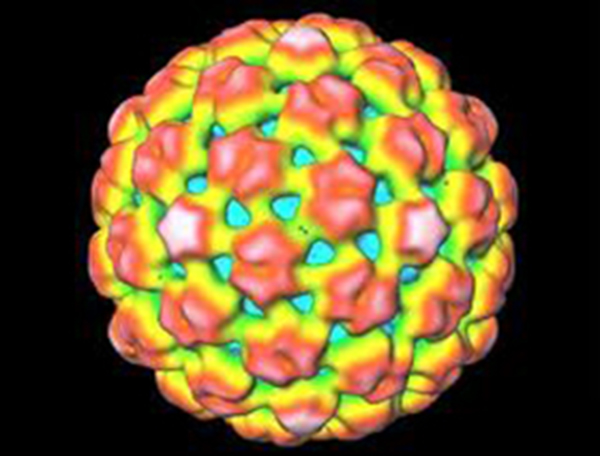No mainstream news coverage as both NIH and University fail to take action against illegal genetic engineering in University Lab.
Daniel Voytas, a professor at the University of Minnesota and the co-inventor of the genome editing tool TALENs, has been found to have violated basic laboratory biosafety rules for a period of more than two years.
Voytas’ case is a concrete demonstration of the weakness of genetic engineering oversight in the United States. The project operated with nine people working over a period of more than two years at a prominent lab on a university campus without being detected and without biosafety approval.
Without seeking or obtaining required safety approvals, Voytas and eight members of his lab genetically engineered a dozen species of plants in a project that lasted from October 2017 through December 2019.
The University of Minnesota institutional biosafety committee (IBC) and the University’s biosafety office were unaware of the experiments
The project, many details of which have yet to be released, was discovered by the IBC’s Assistant Director in December 2019.
By that time, according to an incident report filed with the US federal government, the Voytas team had engineered twelve plant species, including a number of food crops.
Two widely cultivated species of peppers (Capsicum) were altered, along with tomatoes, potatoes, grapes, and sunflower. Other species genetically engineered without oversight included the model plant Arabidopsis thaliana as well as Moricandia arvensis, a wild crucifer of interest as a potential source of photosynthesis genes for the large family of brassica crops, including rapeseed (canola) and vegetables such as cabbage, broccoli, cauliflower, kale, pak choi, and turnips.
The Voytas lab also transformed other plants without the required approval, including plants with medicinal uses such as Nicotiana benthamiana, an Australian relative of cultivated tobacco, sweet briar (Rosa rubiginosa), periwinkle (Catharanthus roseus), and petunias (Petunia axillaris
On 30 January 2020, the University belatedly reported the over two year old violationsthat it had belatedly discovered – apparently more than a month earlier – to the US National Institutes of Health (NIH), which oversees genetic engineering laboratory safety in the US.
Rot and Responsibility
What went wrong at the Voytas lab? Does the University or the federal government care? Until the University comes forward with additional information, it is hard to precisely know.
One thing that does seem clear is that there were no serious consequences for the violations, a fact that will encourage more rogue gene editing at US universities.

 www.independentsciencenews.org
www.independentsciencenews.org
Daniel Voytas, a professor at the University of Minnesota and the co-inventor of the genome editing tool TALENs, has been found to have violated basic laboratory biosafety rules for a period of more than two years.
Voytas’ case is a concrete demonstration of the weakness of genetic engineering oversight in the United States. The project operated with nine people working over a period of more than two years at a prominent lab on a university campus without being detected and without biosafety approval.
Without seeking or obtaining required safety approvals, Voytas and eight members of his lab genetically engineered a dozen species of plants in a project that lasted from October 2017 through December 2019.
The University of Minnesota institutional biosafety committee (IBC) and the University’s biosafety office were unaware of the experiments
The project, many details of which have yet to be released, was discovered by the IBC’s Assistant Director in December 2019.
By that time, according to an incident report filed with the US federal government, the Voytas team had engineered twelve plant species, including a number of food crops.
Two widely cultivated species of peppers (Capsicum) were altered, along with tomatoes, potatoes, grapes, and sunflower. Other species genetically engineered without oversight included the model plant Arabidopsis thaliana as well as Moricandia arvensis, a wild crucifer of interest as a potential source of photosynthesis genes for the large family of brassica crops, including rapeseed (canola) and vegetables such as cabbage, broccoli, cauliflower, kale, pak choi, and turnips.
The Voytas lab also transformed other plants without the required approval, including plants with medicinal uses such as Nicotiana benthamiana, an Australian relative of cultivated tobacco, sweet briar (Rosa rubiginosa), periwinkle (Catharanthus roseus), and petunias (Petunia axillaris
On 30 January 2020, the University belatedly reported the over two year old violationsthat it had belatedly discovered – apparently more than a month earlier – to the US National Institutes of Health (NIH), which oversees genetic engineering laboratory safety in the US.
Rot and Responsibility
What went wrong at the Voytas lab? Does the University or the federal government care? Until the University comes forward with additional information, it is hard to precisely know.
One thing that does seem clear is that there were no serious consequences for the violations, a fact that will encourage more rogue gene editing at US universities.

Genome Editing Pioneer Violated Biosafety Rules - Independent Science News | Food, Health and Agriculture Bioscience News
Daniel Voytas, inventor of genome editing tool TALENS and University of Minnesota Professor, violated US biosafety rules for two years.
Last edited:


